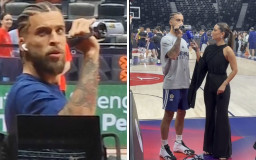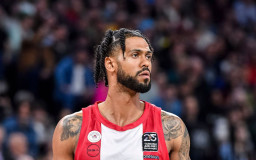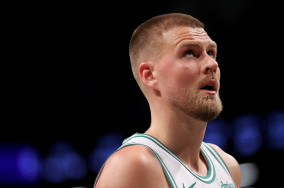FIBA is pushing for a mandatory Letter of Clearance for international players transferring to the NCAA, arguing that U.S. colleges now operate like professional clubs and should fairly compensate the European system that developed these young athletes.
Every year, more young basketball prospects from around the world make the move to play college basketball in the NCAA, often securing lucrative NIL (Name, Image, Likeness) deals in the process.
While this opportunity can be life-changing for the players, it's significantly impacting international, especially European, basketball. Clubs across Europe are losing young talent after investing years into their development, often without any meaningful return.
To address this growing concern, FIBA now plans to require a Letter of Clearance (LOC) for players from outside the United States who want to transfer to NCAA programs.
Although the NCAA has not yet approved this requirement, FIBA Secretary General Andreas Zagklis explained the organization's stance during the FIBA Mid-Term Congress in Bahrain.
"These amounts of money [provided by NCAA] that end up in the hands of 18-20 year old players are welcome for them by entourage. We're happy for them," Zagklis said. "At the same time, we need to acknowledge that this has stopped being an academic experience primarily for the athletes.
"The colleges in the NCAA are getting closer every day to being commercial entities or professional clubs," he noted. "That's challenging our ecosystem for the simple reason that our ecosystem is based on one principle -- you can transfer as long as contracts are respected. Agreements must be respected.
"In order to transfer from one professional basketball institution to another de facto professional basketball institution, there should be a process, a Letter of Clearance," Zagklis went on to say.
"There must be clearance from the exiting club and national federation, and there needs to be some safeguards of where the player is going: what the conditions there will be, what will be the availability for the national team, and what is the recompense for the FIBA ecosystem, including our clubs, our leagues, our federations and their members that have invested for someone who started playing at the age of 9, 10, or 11 and now ends up with a 7-figure check in the hands at the age of 18."

































